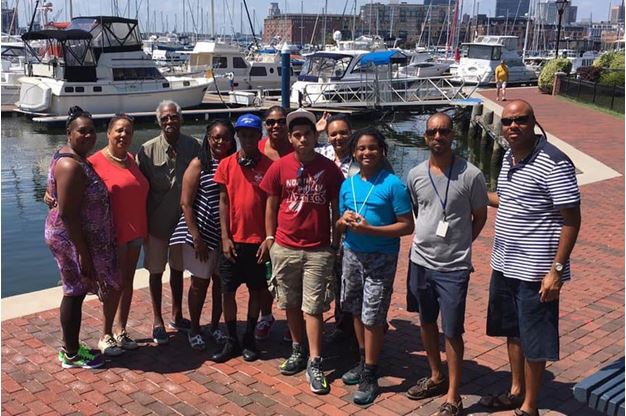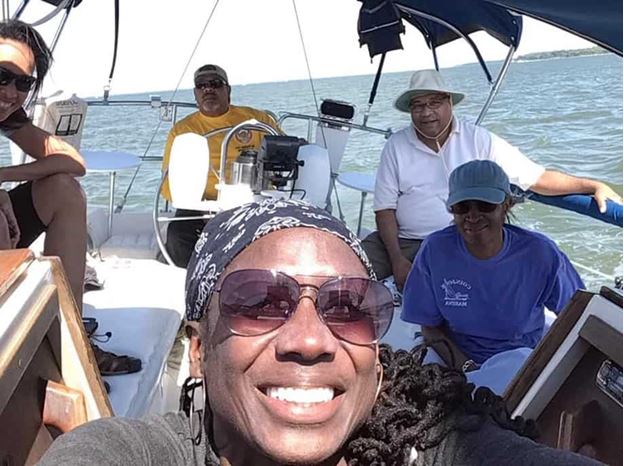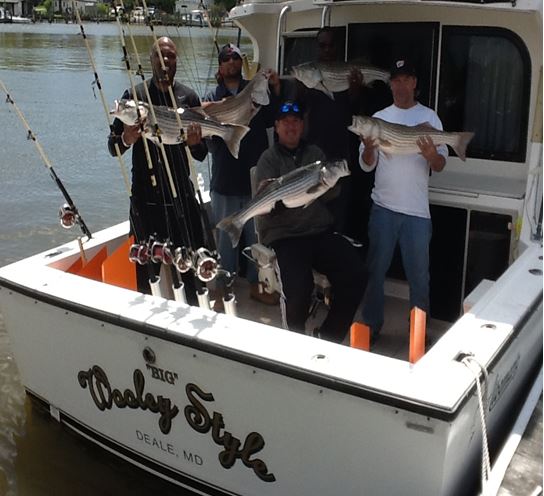Life on the Bay, through ebony eyes
Hear from three voices working to continue the long-established legacy of African-American maritime leadership.
Men of African descent have had a relationship with the waters of the Chesapeake Bay since the arrival of indentured servants in Jamestown, Virginia in 1619. Black watermen have enhanced maritime navigation and trade on the Chesapeake Bay during some of the most critical times in our nation’s history.
Some of the first blacks to be legally classified as American citizens we.re sailors. Sixty-seven years before the Emancipation Proclamation, the federal government began issuing Seamen’s Protection Certificates, which defined those who possessed them as citizens.
Nicknamed “Black Jacks,” these men worked as equals alongside whites while on the water. Indeed, an 1836 law that attempted to restrict black labor on the water was largely ignored by white captains and watermen who kept or employed black sailors, despite the risk of heavy penalties. White boat owners that violated this law would have their boats seized and sold, half the profits going to the informer. Legalized and institutionalized, this law promoted a culture of segregation and economic oppression.
Legal or not, blacks continued to work the water throughout our history as shipbuilders and crew, hauling freight, harvesting oysters and captaining subterfuge (creating strategies for slaves to flee secretly using boat passage). During the Civil War, the U.S. Navy was integrated, and nearly 18,000 men and 11 women have been identified by name as serving in the Navy during that time.
After the Civil War, black labor continued to be an essential part of America’s south, but specifically the Chesapeake region. By 1860, the Chesapeake Bay was the main supplier of oysters in the United States. At the time, oystering was also one of the highest paying jobs for black men.
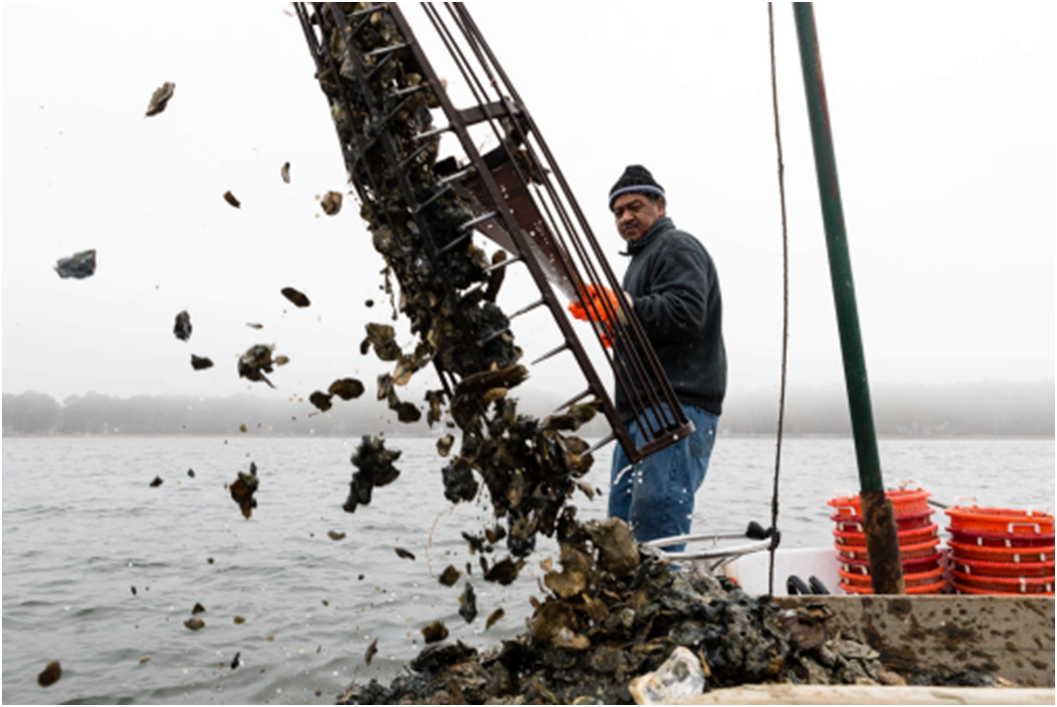
Captain Tyrone Meredith harvests oysters with 18-foot hand tongs. His father, Captain Eldridge Meredith, passed away in 2017 at the age of 91, and was working on the water up until two weeks before he died. (Photo by Will Parson/Chesapeake Bay Program)
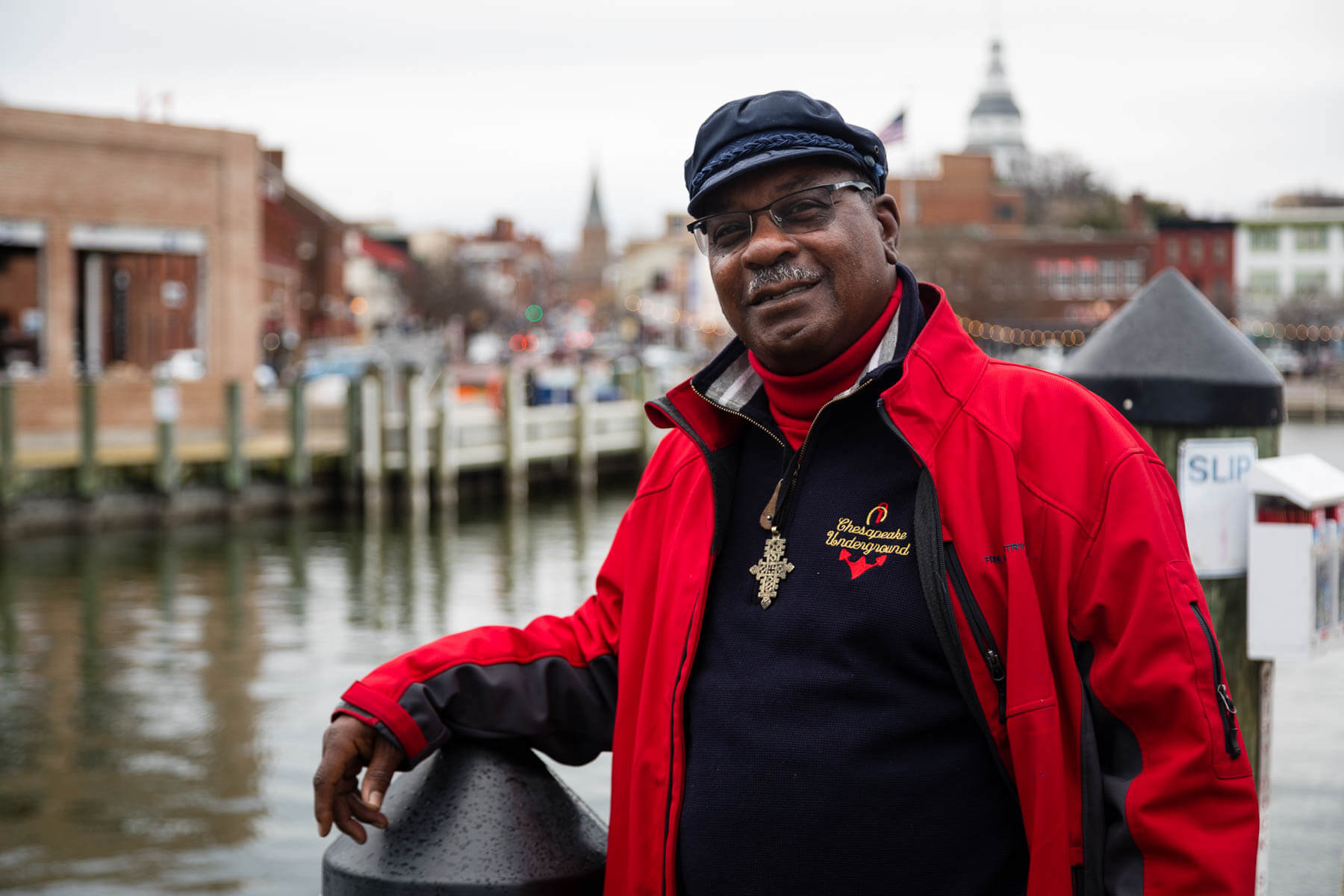
Vince Leggett is the founder of the Blacks of the Chesapeake Bay Foundation and author of The Chesapeake BayThrough Ebony Eyes. Blacks of the Chesapeake works to share the legacy of African-American achievement in the Bay's seafood and maritme industries, support the economic success of those industries and foster environmental preservation and conservation. (Photo by Will Parson/Chesapeake Bay Program)
Continuing the maritime tradition
For the past century, African-American watermen of the Chesapeake Bay have since continued to seek out available economic opportunities as commercial fishermen, oystermen and crabbers. Here in the twenty-first century, the legacy of Black watermen is kept alive through the modern Black waterman still working the Bay today.
One of those watermen is Captain Tyrone Meredith. A fifth generation waterman, Meredith is a jack of all trades on a vessel, having started as a mate on his father’s boat at the age of six.
“The mates on the boat does everything the captain doesn’t do,” said Meredith.
The captain of whom he speaks was his father, the venerable and larger than life Captain Eldridge Meredith of Kent Island, Maryland. Known as “the quintessential waterman,” Captain Eldridge Meredith was named the 101st Admiral of the Chesapeake Bay in 2017 by Governor Larry Hogan.
Meredith the younger continues his father’s legacy but adapts to be a different kind of waterman, facing a harsher Bay and lower catches. “I think the bay grasses disappeared, and the little crabs hide in the bay grass,” explained Meredith. “So, it’s no grass for the crabs to hide and grow. It’s almost as if they’re crawling in a dessert, allowing for larger fish to eat them up before they get big enough to catch.”
As catch decreased, so too did the number of Black watermen Meredith saw. “In 1970, around 100 Black watermen could be found on Kent Island alone. Now you have a handful, maybe about 12 actually left.”
It’s not only the watermen who left. “At one time, there were 18 shucking houses located on Kent Island—about 1,000 Black people were employed across these houses to shuck the oysters and clams,” said Meredith. “Most of the workers in these shucking houses were older, died off or moved away and their children never picked it up. As they got older, climate change became more apparent and the industry died down.”
On top of that, better access to higher education and more stable job opportunities in urban areas like Annapolis, Baltimore and Washington, D.C., played a significant role in the migration of African-Americans from the eastern shores of Maryland to urban areas more inland.
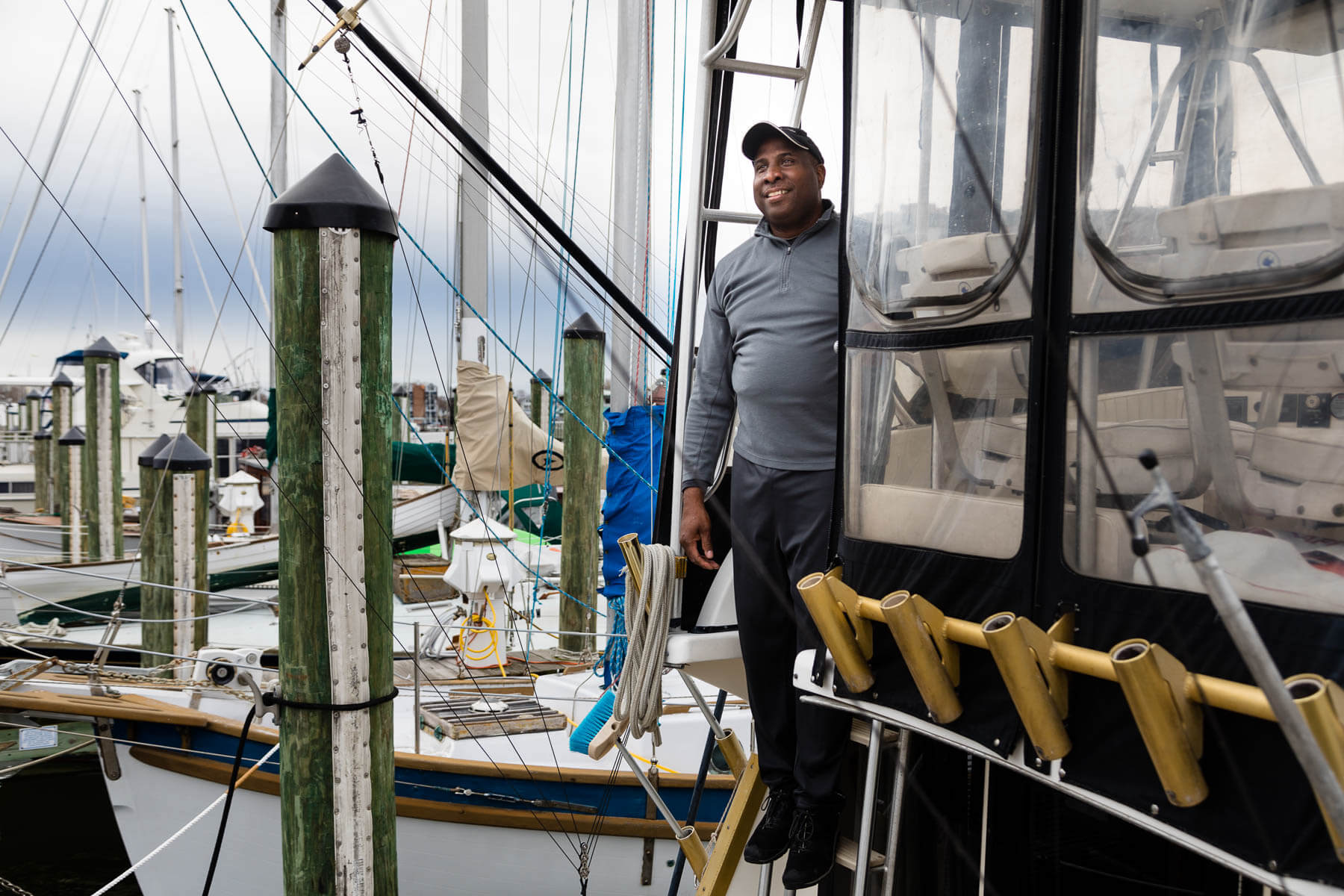
Marcus Wooley stands on his boat in Annapolis, Md. A self-identified "twenty-first century waterman," Wooley is a maritime consultant who shares his love of the water by renting out his two-bedroom, one-bathroom "floating condo." (Photo by Will Parson/Chesapeake Bay Program)
Finding new ways to share the Bay
Further inland from the Black watermen hub of Kent Island, Marcus Wooley learned to love the water as a pleasure boater in the Washington, D.C., metropolitan area. Though he could maneuver a boat before he had a driver’s license, he thought he was alone insofar as wanting to make a living off the water.
“I saw a couple Black boat owners—pleasure boat owners—but not maintaining a living as an entrepreneur that worked five to seven days a week on the water. It was not until I became older that I understood there were black watermen on the Chesapeake Bay, a place where I fished all my life.”
An IT professional by trade, Wooley began transitioning out of his day job to start a business as an independent maritime consultant in the late 1990s. “I feel like I’ve just gravitated to the Bay and just love the water,” said Wooley.
Now, he’s working to share that love with others. During the summer of 2017, he joined Airbnb, advertising his boat as a two-bedroom, one-bathroom floating condo. He is also considering other avenues of enterprise on the water, such as running tours. “The industry has changed,” shrugged Wooley, who sees himself as a twenty-first century waterman, “just as much as the environment has changed.”
Keeping up with that change is Vince Leggett, founder of the Blacks of the Chesapeake Foundation, who works to capture the stories of African-Americans in the Chesapeake region. Leggett is a historian, writer and cultural geographer of African-American legacy and heritage of the Chesapeake Bay, and a 2003 awardee of the Admiral of the Chesapeake Bay.
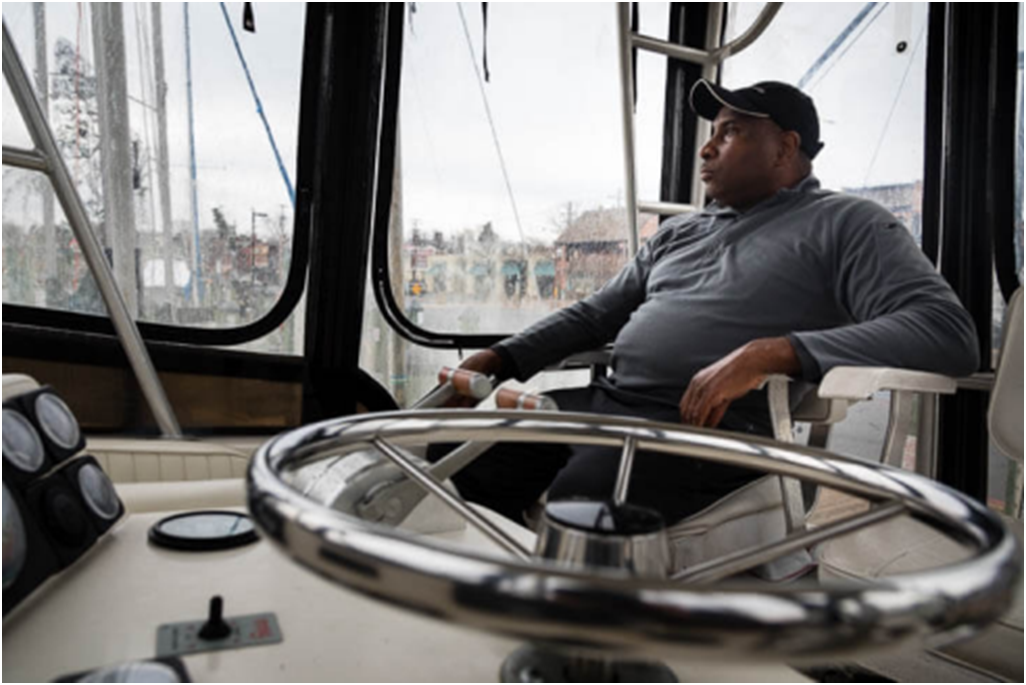
“What I have found is, from an African-American perspective, is that exposure is a big part of it,” he said. “As we look for ways to diversify the industry, I think for men like Captain Meredith and Captain Wooley to stay on the Bay, they need to find different ways to make it work. How they use their 30 and 40 years and multiple generations of insights of tides and waves to take care of their families, and their grandkids to show a way to stay on the water because the day they quit, we’re closed.”
Leggett then spoke on the topic of environmental stewardship in the African-American community with a specific connection to open waters, stressing the importance of merging STEM and STEAM (science, technology, engineering, [art] and math) education with cultural relevance for youth.
He also said it is imperative to have more African-Americans and African-American organizations serve on executive boards of maritime organizations. Serving on executive boards and halls of government will ensure that more African-Americans are aware of the available resources and decision making processes, to fill economic and cultural gaps.
The history of Black watermen is deep, one that may seem murky to some. However, like the oysters of our Chesapeake Bay, leaders like Meredith, Wooley and Leggett continue to clear the way for future African-American watermen, leisure boaters and entrepreneurs alike to partake in the billion-dollar maritime industry and recreational experiences of our jewel of the Chesapeake Bay.

Maryland’s Universal Sailing Club Turns 20
Organizers have big plans for a late-summer birthday bash on Chesapeake Bay.
Universal Sailing Club, the only Black sailing club on the East Coast, is celebrating its 20th anniversary. Courtesy Universal Sailing Club
Directors of the Maryland-based Universal Sailing Club are organizing a 20th Anniversary Weekend Celebration to observe the achievements of its members, hosted by Maryland Yacht Club of Pasadena, Maryland, from September 3 to 6.
A USC spokesperson says that friends plan to arrive by land and by sea. The objective for the weekend is to smile, share sailing stories, and enjoy the camaraderie of the many great captains and crew in attendance. Plans for the weekend include an opportunity to speak personally to the audience about the meaning and impact that the USC has had.
USC members enjoy planned activities on and off the water. Courtesy Universal Sailing Club
Founded by Marcus Asante and further developed along with Michael Campbell in 2001, the USC remains the only African American sailing club on the East Coast of the United States. Many members are from New York and the Mid-Atlantic states, and its primary cruising area is the Chesapeake Bay. The region serves a growing Black sailing community throughout Maryland, Virginia, and Washington D.C.
